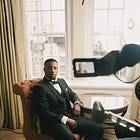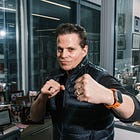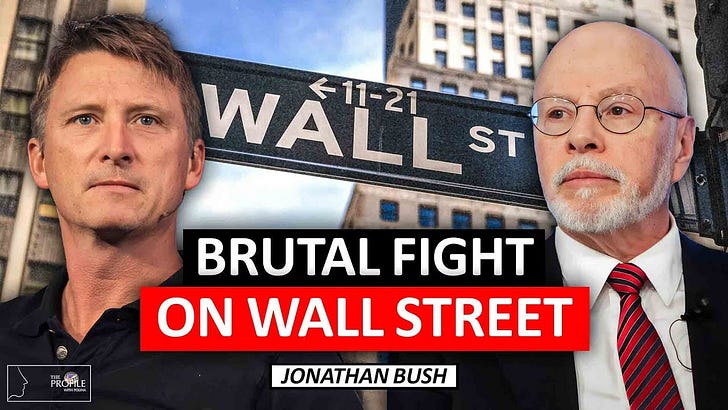One of the most surprising things I discovered about Philadelphia Eagles star Saquon Barkley when writing my longform profile, Saquon Barkley Is Playing for Equity, was how he thinks about risk and money.
Early on, I kept circling a contradiction: Saquon wants permanence in the form of ownership and equity yet he’s pursuing it partly through venture investing, an asset class defined by volatility. As my editor Laura asked me, “Curious about why, if his goal is building a stable foundation for his kids, he doesn't just invest in an index fund?”
That was a great point, and one that led me down a road of nuance and detail to better figure out his relationship with risk.
Laura’s point was that even late-stage companies with dazzling valuations can go to zero. Why would someone obsessed with durability choose a risky path?
The answer revealed itself in how Saquon thinks about control. Football taught him fragility: one injury, one franchise decision, one bad week can flip a narrative.
Investing, on the other hand, is a form of risk he believes he can shape. When Saquon backs a company, he lends his reputation, shows up in ads, talks to customers, and does whatever he needs to move the odds closer in his favor.
That’s the tension I chased in this piece, and it’s also what this ‘Ask Me Anything’ unpacks: how I found the heart of the story, captured his humanity and contradictions, and what non-athletes can borrow from his playbook.
I hope you enjoy it by watching the video at the top of this article.
Here is an excerpt:
Q: What are the key elements in a profile that you must have and are never optional?
One thing that I always have to have in one of my profiles is a contradiction. No one is fully perfect in the regard of, ‘I believe this, and I only believe this in every area of my life.’
This is why the Saquon story came out so well, I think, is because he has so many contradictions. The contradictions in someone's life are what make them human. For example, you can want to be great while also believing you don't entirely deserve what you have.
With Saquon, for example, I found it fascinating that he hadn’t consciously connected some of the forces shaping him. His father was a talented boxer whose career ended after a shoulder injury he couldn’t afford to repair.
Naturally, it makes sense that Saquon became so focused on long-term wealth and ownership because one injury can end a career. But when I asked him about it, he said he’d never really thought of it that way. His father, on the other hand, has previously talked about how his own lack of access to capital drove him to tell Saquon to never give up and to build something lasting.
Q: How do you feel when you're asking uncomfortable questions in an interview?
The way I approach the interview is more of a conversation, so that it doesn't necessarily feel like an interview. For example, if Saquon says something that I think is contradictory to what he did or what he previously said, I'll tell him. I'll say, ‘Oh, wait, but in 2021, I read that you said, blah, blah, blah. Is that right? How do you square that?’
I’m just asking because I'm curious, and I think people are smart enough to know the difference. I think you know when somebody's asking you questions out of judgment, and I think you know when a person's asking you questions out of curiosity.
Q: What lessons can a non-athlete take away from this story?
Yes, this is an athlete story, but it's also a broader story in that you don't have to be constrained by the thing that you do being your main driver of income. You can be curious about other sectors. You can learn about other things.
When I was a reporter at FORTUNE, 100% of my salary was paid to me by FORTUNE, so if they ever decided to get rid of me, 100% of my income was gone.
When I started working for myself, I realized you can have subscription revenue, you can have speaking revenue, you can have book revenue, you can have syndication revenue. It's all these different income streams. It's not like all of my eggs were in one basket, and I think that's partly what Saquon is trying to do.
He knows right now is the moment. He knows he's hot. He knows everybody wants to work with him. He knows he will never be this popular again. So that's why he's doing it right now instead of waiting for the end of his career.
I think striking while the iron is hot is a good strategy for a lot of people. Also, I think if you can build ownership in something, it's way more valuable than working for somebody else. Even if you work for somebody else, investing so you can have a piece of something that you own is probably a good strategy. And also the final thing is: surround yourself with great people that you trust who are really, really smart — smart in ways that you are not.
Like Saquon says, “I never want to be the smartest person in the room.” That's a good mentality. When you are making really big decisions in your career and in your life, the wrong people can lead you down a really, really long road of destruction.














